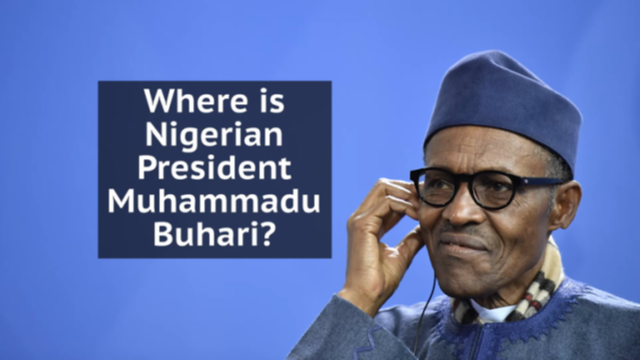By Emeka Alex Duru
The tinge of despondency conveyed in the early morning call from Nze Duruji Ibeakanma, an octogenarian and Biafra civil war veteran, was unmistakable. There was no room for the usual pleasantries. Efforts by this reporter to inquire from him his current state of health and that of his spouse, with whom he has been married for more than 50 years, were ignored. Or snubbed, in a way.
That was unusual. On a good day, Ibeakanma, witty and averagely literate, is a good company. A man of sharp intellect and retentive memory, he would recall virtually the details of his last encounter with you.
But on this Wednesday morning, Nze Ukwu (as he is fondly called, as mark of distinction from fellow Nze title holders), was obviously not in the best of moods.
He had some complaints to lodge about his son, Chinedu, who he accused of being “possessed by the devil”. That sounded strange. Chinedu, in his late forties, is anything every parent would desire in a son. He is well-behaved and well-off in material terms.
So, “how is he being possessed by the devil? What is this that Chinedu has done”, the reporter managed to ask.
That opened a lengthy discussion that ended in the good old man sobbing at the other end of the telephone. Ibeakanma’s father was the only son of his parents. He is also the only surviving son of his parents. He lost his elder brother, Gabriel, in the crisis that preceded the 1967-1970 civil war, in Jos, Plateau State.
Among his five children, Chinedu, who is based in Kano, is the only son. Others are females.
From the moment Chinedu took up residence in the North after graduation, Ibeakanma, has not been well disposed to the decision. He had on occasions, recruited relations to convince his son to relocate his family to the East. But he had always been assured that there was nothing to fear.
But following the news in town on the trending anti-Igbo song in various parts of the North, the erstwhile combatant has not been at ease. And he was poignant in his complaint.
“Tell Chinedu that he will not die before me. It is his responsibility to bury me and not mine to bury him. A wise man does not fall on the same spot twice. I have made so much sacrifice to this country. I lost Gabriel, my only brother to Nigeria during the 1966 pogrom. Our mother did not survive the shock.
“I lost virtually all that I had in Bukuru, Jos, when the crisis in the North became unbearable. I lost two of my fingers to bullets from the federal forces during the war. It was God that saved me from being torn to pieces.
“This Boy (Chinedu) also wants me to lose him or any member of his household. I am sure he is being possessed by the devil. But he will not succeed. I will kill myself before he allows them to kill him.
“Tell him to send down his wife and children to me if he does not want to relocate to the East. I heard about the song currently circulating in the North. That was how it started in 1966 but we did not take it serious, till they showed us that they meant business.
“I have been telling him to come home but he does not seem bothered. Help me send this message to him. But if you fail, I will not forgive you, even in death”, he fumed.
The exasperation by Ibeakanma is in line with the prevailing climate in most parts of the East, since a certain derogatory anti-Igbo song is said to have found its way among the cities and settlements in the North.
Those versed in Hausa language, allege that the song itemizes what it considers bad sides of the Igbo and calls on the indigenes to rise against the Igbo in their midst.
Concerned Nigerians react
Informed journalist and former Enugu State Commissioner for Information, Igbonekwu Ogazimorah, quoting those who have good understanding of Hausa language, remarked that the song may be a precursor to some dangers ahead.
“It is inciting. It is a time bomb. It is hate personified, and if not checked, the grim reaper will be violence”, he noted in his social media, facebook page.
Other well-meaning Nigerians have spoken in condemnation of the song. Former President, Goodluck Jonathan, is among them. In a facebook post on Tuesday, August 8, 2017, he stressed on the need for prompt management of the song to prevent ugly situation that may accompany it.
He wrote; “I am disturbed about the news of a song celebrating hatred against a particular Nigerian ethnic group.
“Given that a similar song was what ignited the Rwandan Genocide, as a nation, we must not take these reports lightly. I urge the security services to do their utmost to nip this wickedness in the bud”.
Former Vice President, Atiku Abubakar, has also condemned the song, warning that the country should not be allowed to slide into genocide like Rwanda.
In a statement released by his media office, which he personally signed and titled, “Nigeria does not need a Rwandan Deja vu”, Atiku urged all Nigerians to condemn what he said was “reminiscent of the beginning of the Rwandan Genocide.”
He called on the security agencies to fish out and bring to trial those responsible for the song.
The offensive song, coming barely two months to the expiration date on the Igbo living in the North to leave by the Arewa youths, has remained a source of concern to many.
A coalition of Northern groups, including the Arewa Youth Consultative Forum, had on Tuesday, June 6, in Arewa House, Kaduna, given all Igbo resident in the 19 states of the North a three-month ultimatum to quit or be forced out after the expiration of the October 1, 2017, deadline.
Following widespread condemnation of the ultimatum by individuals and groups within and outside the country, Kaduna State governor, Nasir el-Rufai, had announced an order on the Police to arrest those behind the quit order.
In what seemed a follow-up, Minister for Information, Lai Mohammed, claimed that security agencies were on red alert over the position of the northern Youth.
FG, Northern governors, keep mum
Curiously, two months after, none of those who issued the order has been arrested. Even as tension rises over the anti-Igbo song that seems a follow-up to the June quit order, none of the governors in the North has spoken against the development. The Federal Government has also not taken any known position on the issue.
Attempts by this reporter to speak with the Information Minister on the reaction of the government to the new development, did not yield fruits, as his telephone line did not go through. Text message sent to his line was also not responded to, by press time.
Going the Rwanda way?
Aside falling in line with the trend that preceded the 1966 pogrom against the Igbo in the North, observers warn that the song has a lot in the antics that culminated to the 1994 genocide in Rwanda.
According to Wikipedia, the free encyclopedia, the Rwandan genocide, also known as the genocide against the Tutsi, was a genocidal mass slaughter of Tutsi in Rwanda by members of the Hutu majority government. An estimated 500,000–1,000,000 Rwandans were killed during the 100-day period from April 7 to mid-July 1994.
The genocide and widespread slaughter of Rwandans ended when the Tutsi-backed and heavily armed Rwandan Patriotic Front (RPF) led by Paul Kagame took control of the country.
Here in Nigeria, the 1966 anti-Igbo pogrom was a series of massacres committed against Igbo and other people of southern Nigerian origin living in the north starting in May 1966 and reaching a peak after 29 September 1966. Estimates of the Igbo lost in the mayhem, were put at over 30,000.
These events led to the secession of the Eastern Region and the declaration of the Republic of Biafra, which ultimately led to the Nigeria-Biafra war.
Avoiding falling victim in a repeat exercise, was what essentially informed the hysteria by Nze Ibeakanma in his early morning call, over his Kano-based son.
TheNiche investigations indicated that in the absence of cock-sure assurance of their safety by the Federal Government, most of the Igbo living in the North, have embarked on safety measures that will see them not falling easy prey to those behind the October 1 quit notice and their foot soldiers. Some, who spoke off record, failed to disclose their strategies at not being caught unawares, but maintained that they were studying the situation, carefully.











